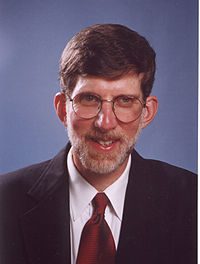 Much has been said about evolution, creation or intelligent design (ID) arguments. Evolutionists have taken ID scientists to court and settled their score in this dispute. While we are certainly curious about this scientific method of settling scientific issues in court, we would like to examine, the nature and method of science from two Nobel Laureates: Richard P Feynman and Percy W Bridgman. Liny J examines this.
Much has been said about evolution, creation or intelligent design (ID) arguments. Evolutionists have taken ID scientists to court and settled their score in this dispute. While we are certainly curious about this scientific method of settling scientific issues in court, we would like to examine, the nature and method of science from two Nobel Laureates: Richard P Feynman and Percy W Bridgman. Liny J examines this.
Nobel Laureate Richard P. Feynman is no friend of Christians. He might have even disliked religions. However, he had some perceptive comments about science that every Christian should know. In his lecture, The Uncertainty of Science, Feynman noted, “A scientific argument is likely to involve a great deal of laughter and uncertainty on both sides, with both sides thinking up experiments and offering to bet on the outcome.”
He narrated a few experiences which initially looked as ‘foolish’ but later turned to be path-breaking. Recalling this, he said, “It seemed then that the mass of the top spinning and not spinning was exactly the same, and someone made a guess that the mass never changes. How foolish! What a fool! It is only a guessed law, an extrapolation. Why did he do something so unscientific? There was nothing unscientific about it; it was only uncertain. It would have been unscientific not to guess.”
He concluded the lecture by observing, “All scientific knowledge is uncertain. This experience with doubt and uncertainty is important. I believe that it is of very great value, and one that extends beyond the sciences. I believe that to solve any problem that has never been solved before, you have to leave the door to the unknown ajar. You have to permit the possibility that you do not have it exactly right. Otherwise, if you have made up your mind already, you might not solve it.”
Percy W Bridgman, another Nobel Laureate, who wrote extensively on scientific methods, wrote this: “The scientist cannot permit himself any preconception as to what sort of results he will get, nor must he allow himself to be influenced by wishful thinking or personal bias.” (Scientific Method, Reflections of Physicist, 1955).
If we have understood these scientists correctly, then scientists must always welcome criticisms, and should be open to any sort of results. Now our curiosity has increased regarding the evolution scientists. Why are they so much against criticisms from creationists and ID scientists? Why do they always insist that all results of the queries about the origin of universe and life must point towards the evolution?
Our curiosity has multiplied manifold after reading these great scientists. Is evolution then an exceptional science- a dogma? We are bewildered.
{moscomment}






Darwin looks great :grin. Irfan
The answer is simple they knew more than anybody the weakness of what they hold and what they speak. In these situations the best strategy is attack anything which comes against you from the very beginning itself outrageously to make sure your survival.